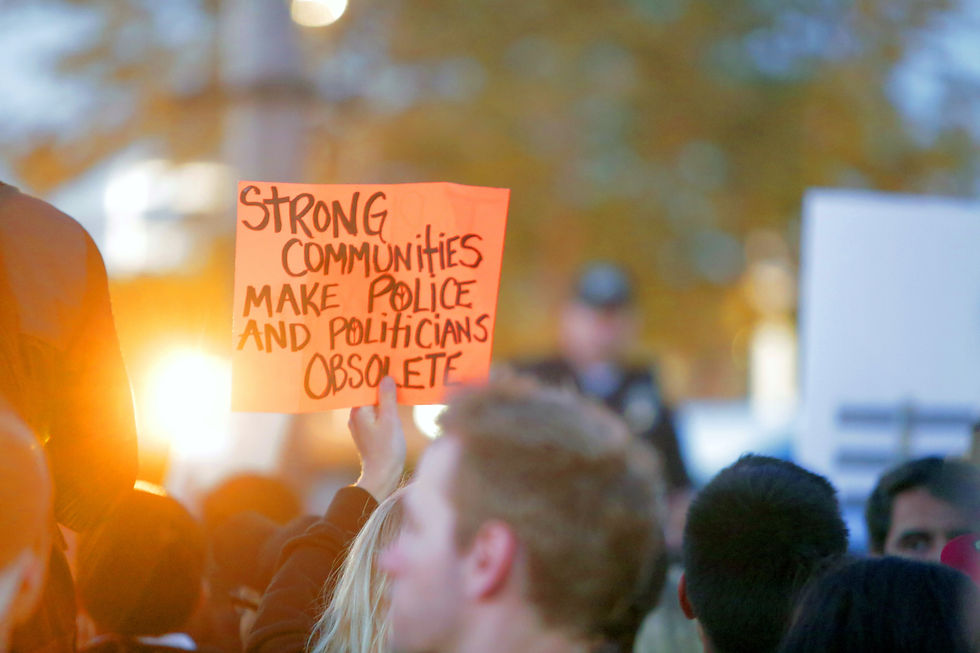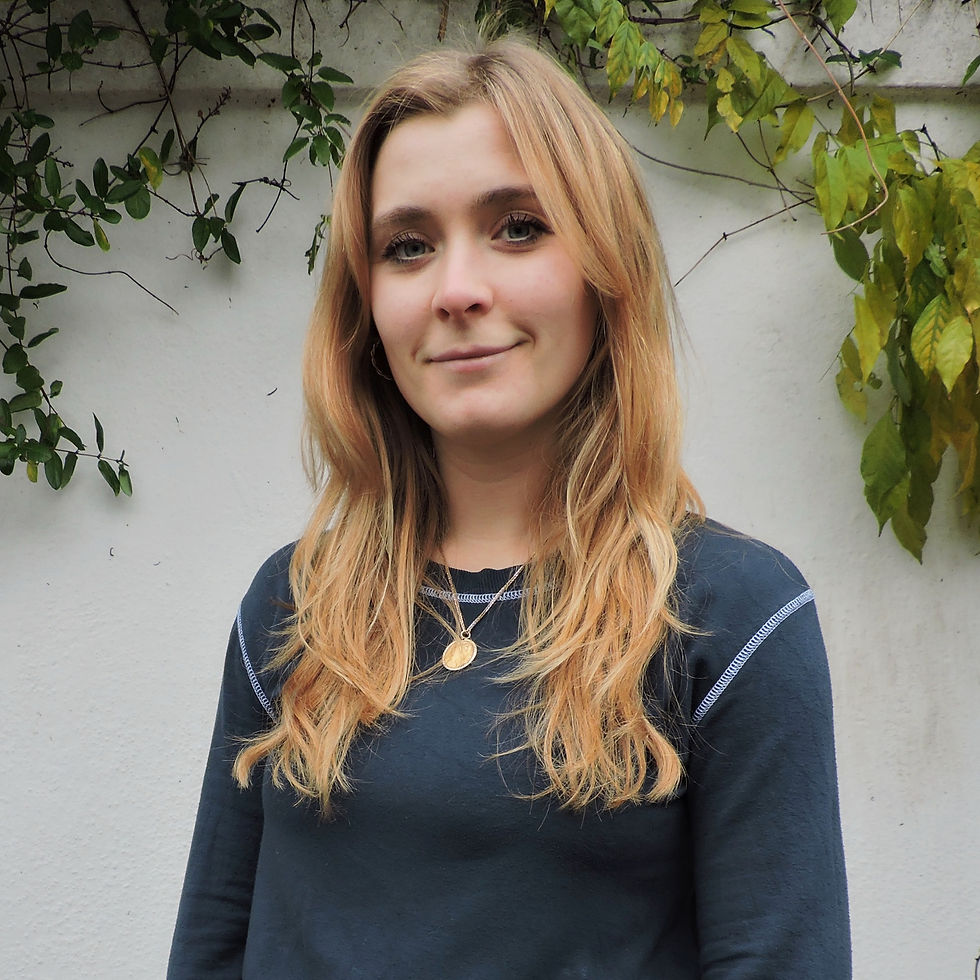Responding to Coronavirus: the worst affected are not only our moral patients
- Hannah McHugh

- May 24, 2020
- 8 min read
Updated: Mar 15

The burden of CoVid-19 has fallen unequally on society, that is clear. The aphorism “when White America catches a cold, Black America gets pneumonia” may have never been more appropriate. In the face of such stark inequality, we must ask how necessary resources can be made available to those who lack them. However, if societies focus too greatly on distributive inequality, they risk becoming blind to the social and political processes that lead us to owe financial aid to those less fortunate. CoVid-19 has brought about a scenario where many need urgent financial assistance, but to rely on a system which only redistributes the resources of the more fortunate to the less fortunate does little to redress problematic imbalances of power between citizens. It does not reflect a society of moral equals, but instead one in which some are merely moral patients.
Using an analysis that draws on the ideas of Iris Marion Young, this article asks if there is a risk that in responding to the CoVid-19 crisis, a narrow focus on redistributing particular resources to reach the most vulnerable could in fact form part of the paradigm that disempowers those most in need.
The inclination to redistribute – how did we get here?
Conceptions of justice are, in almost all cases, tied to the concept of the moral equality of persons. That is, the belief that all people are of equal worth and are entitled to equal respect. This doctrine of moral equality is a cornerstone of democratic Enlightenment political philosophy. Since the time of the enlightenment, political philosophers and policy makers have grappled with how this ideal ought to be realised.
In order to treat citizens equally, liberal nations have sought to adopt legislation that, at least to some extent, ensures a level of ‘distributive equality’ and ‘formal equality’. Distributive equality refers to the morally proper distribution of benefits and burdens among the members of a society, whilst formal equality refers to the requirement that all men and women are subject to the same rules in social, political and economic life. Despite these noble aims, it has been argued that the pursuit of these goals has in many cases led to the comparative disempowerment of some citizens. Critics claim that these principles are blind to the social processes that lead us to states of inequality and therefore cannot redress them. That is to say, this focus on the allocation of material goods, such as income, wealth, property or the distribution of jobs tends to ignore the institutional context that eventually determines societal patterns.
On realising the existence of an inequality, we are too often inclined to respond by reorienting resources to those in need, without addressing the causal factors that have led to this state. But in the long term, it is not clear that this will resolve anything. Instead, long-standing equality may require that we refocus our efforts to ensure equal decision-making power, procedures, division of labour and culture.
To respond to the demands of less privileged citizens by offering only financial compensation is to at best misunderstand, and at worst to wilfully distract from and ignore the true nature of their political ask: for equal power in society, and to be the masters of their own lives.
A crisis such as CoVid-19 exacerbates this problem. The urgency to address extreme inequality of necessary resources – such as income and healthcare – may lead us to more readily disregard the possibility of reforming the processes that have led to the situation whereby some groups are more vulnerable and more affected by the crisis. This disparity between the response of governments and the wants of social groups can be seen in the dynamics of social movements.
What do social movements want, and how are they ignored?
Social movements may press for resources from the state; however, their main focus is most often not primarily distributive. Consider the goals and wants of Black Lives Matter. The movement began with a mission ‘to build local power and intervene when violence was inflicted on Black communities by the state and vigilantes’ and has since developed to a commitment ‘to struggling together and to imagining and creating a world free of anti-Blackness, where every Black person has the social, economic, and political power to thrive.’
The prevailing concept in this mission is one of power. In our distribution-focussed system, we evade too often questions of where power lies in our societies. Social movements do not ask for welfare provisions, they challenge the decision-making structures and powerful groups who are able to exert their will upon more vulnerable groups. They may be cultural political movements. Feminism (which is of course more than only a cultural movement), for example, targets the injustice involved in all aspects of daily life from language, to clothing, to family structures to workplace practices, to commercial advertising, to voting rights and to political participation (and indeed beyond). To respond to the demands of women and Black Americans with only financial assistance, and not with due integration into social, economic and political processes is to fail to treat these groups as moral equals.
This being said, there is of course a strong link between power and distributive equality, and a deficit of either good ought not to be ignored. The two may even be mutually dependent. Indeed, this is evident and prevalent in these times given the uneven impact of the coronavirus crisis on the most powerless in our societies. To better understand the interaction between power and other forms of inequality, we can consider the persistent inequality between Black and White Americans and how this has played out during the pandemic.
The uneven impact of CoVid-19 on Black Americans
There has been plenty of reporting on the staggeringly disproportionate economic and health impacts felt by Black communities in the USA. Consider Louisiana, whose state governor has acknowledged the dismal truth that while Black Americans make up just thirty-three per cent of Louisiana’s population, they comprise seventy per cent of the dead. In Philadelphia, postcodes with a ‘lower proportion of minorities and higher incomes’ had access to a higher number of tests for coronavirus than in neighbourhoods with higher unemployment and uninsured residents.
Black citizens are concentrated in jobs (such as in the retail, transport, home health care and service sectors) that place them on the front lines of the pandemic where social distancing is impossible as compared with those of us who can live and work within the ‘Zoom bubble’. Further, institutions within which social distancing is inherently impaired, including prisons and homeless shelters, are predominately occupied by Black Americans. Lamenting the lack of access to healthcare for these vulnerable citizens does little to analyse the processes that have made these citizens more exposed to and less able to combat the coronavirus in the first place. In addition to economic disadvantage, social deprivation and democratic disqualification have perpetuated the systemic injustices that have led to the distributive inequality faced by these citizens. To resolve these unjust social processes, financial resources given by richer White Americans to poorer citizens will be insufficient.
The lack of representation of Black Americans is an indicator of the lack of power of the community. Only one of the 52 representatives of the ruling Republican Party is black. Consider how such elected officials, who in most cases are not reflective on minority groups, respond to these injustices by recontaining the problem into a matter of distributional concern. In Philadelphia, as public debate is beginning to focus upon the mounting inequality in suffering between racial groups and the poor civic infrastructure which has led to this, the mayor of Philadelphia Jim Kenney has announced budgetary cuts: ‘It’s not going to be easy, and it’s not going to be pleasant . . . but, at the end of it, we need a balanced budget.’ This financial focus not only distracts from, but fundamentally undermines the true needs and aims of black social movements and indeed black citizens. It responds primarily to the concerns of those at the apex of the social hierarchy, and as a policy will depend on the continued economic activity of vulnerable minority communities, despite the disproportionate risk to their health and wellbeing.
What should be done? The power in local decision-making
Repairing the complex and deep interaction of injustices experienced by Black Americans requires systemic change. These citizens seek empowerment, not merely financial contributions. It is disputed whether power can be a good for distribution at all. Young argues that it cannot. She argues that whilst we cannot redistribute power as if it is some finite resource to share between us, we can reorganise our decision-making rules and practices to introduce procedures of collective discussion that bring people some control over their own lives and actions. There is power in local decision making and representation.
The current legal system may provide formal equality, according to which the law is impartial to all. However, if the law is created by a non-representative collection of the nation, how can we truly analyse the output as so impartial? Further, if positions within the bureaucratic and juridical arms of the state are similarly occupied, the disempowerment of those citizens seeking assistance from these organisations will continue to be perpetuated. They will at best be offered welfare, and will be treated as moral patients, not as moral equals.
Local decision-making and empowerment will enable such minorities to begin to erode the walls of injustice that have boxed them into patterns of disempowerment that have caused such deep inequalities. Not only ought there be representation at the federal level of government, but also among those bureaucratic organisations that coordinate the distribution of welfare. This is necessary to reverse the one-directional power that holders of such social positions wield in the lives of vulnerable citizens. These organisations should facilitate decision-making at the local level, not distribute decisions taken by non-representative lawmakers whose interests diverge significantly from those of the local community.
The potential power and effectiveness of local and national governments in protecting citizens has been seen during this crisis. Measures adopted have included: delays to evictions from rental properties, to accrual of interest and collection of loans, release of some prisoners, moratoriums on utility suppliers cutting off access to, inter alia, potable water and pledges to temporarily not to pursue those found guilty of misdemeanour offences.
Such measures reflect the multitude of ways that government can address the social injustices citizens face each day. Local authorities have these powers not only in times of crisis, but always. These organisations should be the site of citizens’ power, not merely the holders of power who distribute resources amongst powerless citizens. This can only be ensured by representative participation of minorities in these organisations.
Democracy takes place not only at the top levels of government, or in the competition for resources, but in our everyday lives and communities. These are the sites where most citizens interact with the state. To address the outcomes of inequality, society cannot be blind to structural and social injustice that leads us to that inequality. Local and national government must empower all citizens, not only hold power over them.
*Photo by Steve Carrera
About the Author

Hannah conducted her PhD in Political Theory at University College London and has taught at the London School of Economics. Hannah is a Labour Party Councillor in Islington. Her main areas of interest are theories of political responsibility and social change, feminist and neo-republican political theory, as well as philosophical approaches to the contemporary market economy.




Comments